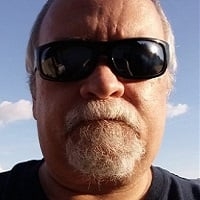We support our Publishers and Content Creators. You can view this story on their website by CLICKING HERE.
The passing of actor James Earl Jones was a shock to Hollywood and American audiences alike and has now sparked a conversation about artificial intelligence in the industry.
Prior to his passing at 93 years of age, Jones has voiced one of the most beloved villains in cinematic history, Darth Vader. Vanity Fair reports that Jones reportedly “had mentioned he was looking into winding down this particular character” to LucasArts’ Matthew Wood. The conversation had taken place after recording some dialogue for “The Rise of Skywalker,” and resulted in Jones eventually signing over the rights to his voice as Vader to the company, as well as Ukrainian startup Respeecher, in 2022. Woods explained that he had shown Jones the capabilities of Respeecher, and the actor insisted that the company inform him of their plans for Darth Vader as well as take his input regarding how to keep the character consistent with his previous work.
This means that legally, the company could utilize artificial intelligence to allow Jones to posthumously voice the character. But this isn’t without its own problems.
The largest issue requires a callback to the SAG-AFTRA strikes, where performers voiced their concerns that AI would push out traditional voice acting. The news that Jones was able to sign over his rights and receive compensation renewed those concerns.
Voice actor and member of SAG-AFTRA’s interactive media agreement negotiating committee Zeke Alton spoke to the Associated Press about the news.
“If the game companies, the movie companies, gave the consent, compensation transparency to every actor that they gave James Earl Jones, we wouldn’t be on strike,” he explained. “It proves that they can do it. They just don’t want to for people that they feel don’t have the leverage to bargain for themselves.”
However, LucasArts and UK’s Lunak Heavy Industries are currently being sued for their alleged recreation of another actor’s likeness without permission.
Kevin Francis accused the company of using a body double and special effects to recreate the likeness of his late friend Peter Cushing who played Grand Moff Tarkin in the original ‘Star Wars’ film. Cushing, who passed in 1994, reportedly signed an agreement one year before his death allowing Francis to have approval over his likeness. He claims that the filmmakers behind 2016’s “Rogue One: A Star Wars Story” violated this agreement.
Recently, a judge rejected a motion to dismiss brought by Lucasfilm and Lunak Heavy Industries.
We have no tolerance for comments containing violence, racism, profanity, vulgarity, doxing, or discourteous behavior. If a comment is spam, instead of replying to it please click the ∨ icon below and to the right of that comment. Thank you for partnering with us to maintain fruitful conversation.

 Conservative
Conservative  Search
Search Trending
Trending Current News
Current News 




